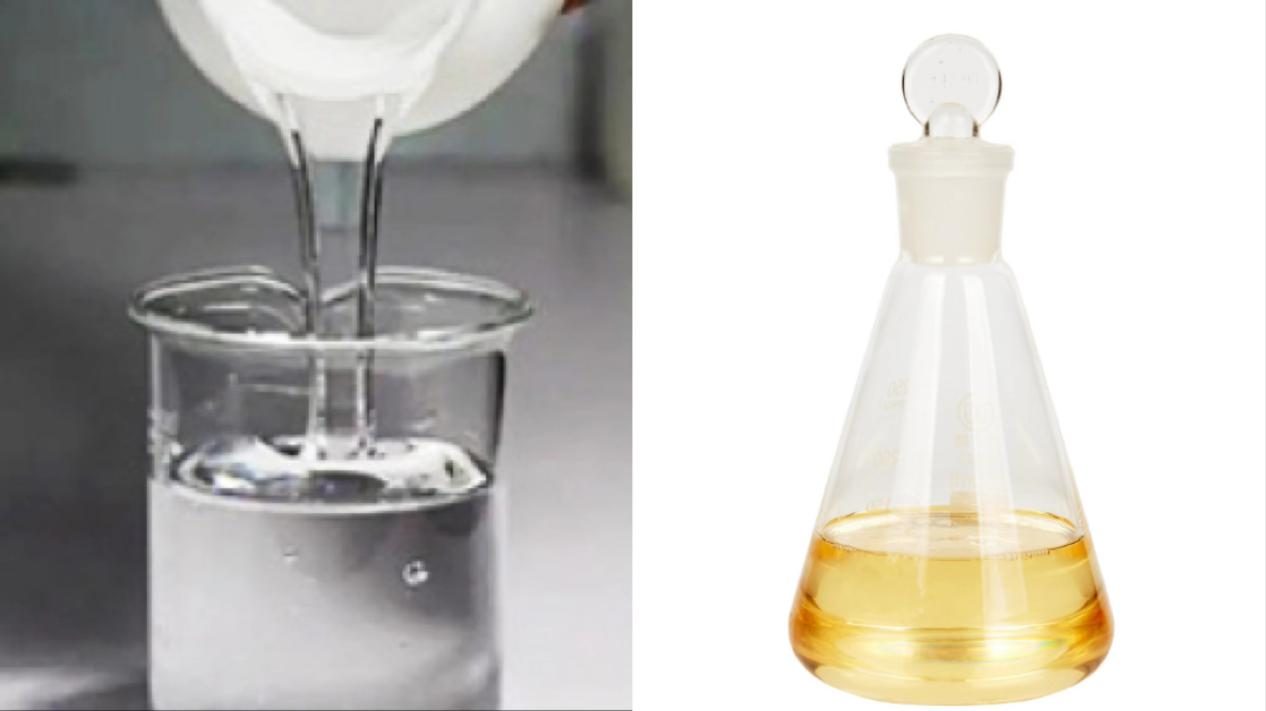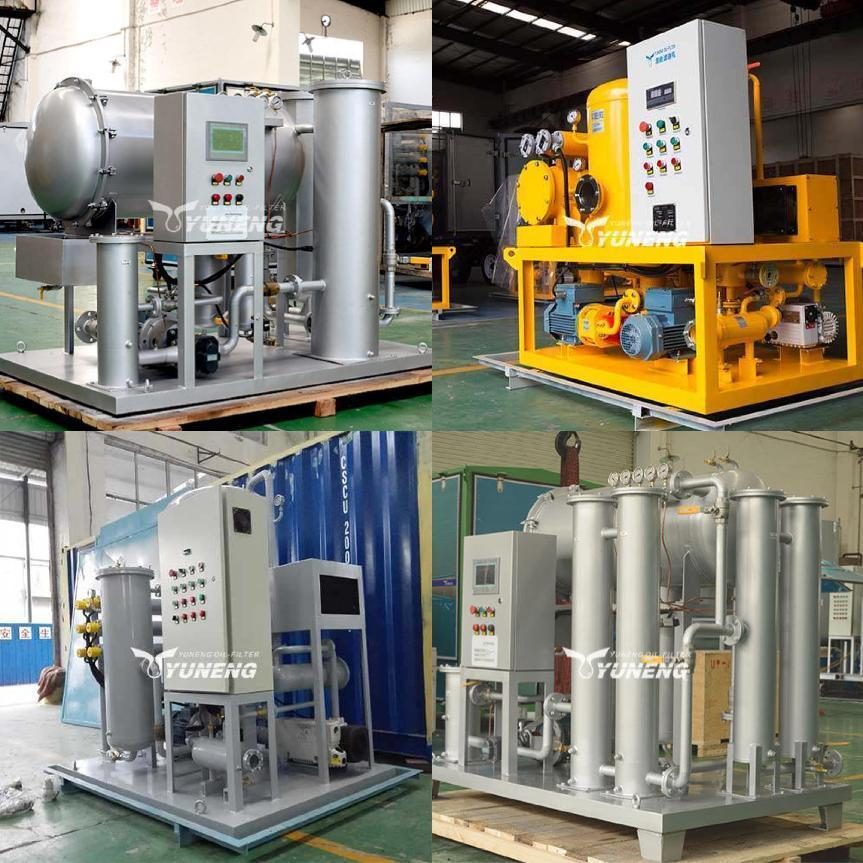Learn The Truth About Turbine Oil Purifier In The Next 60 Seconds
This article will describe the difference between turbine oil and hydraulic oil, analyze the causes and processes of turbine oil deterioration, understand the maintenance methods of turbine oil and lubricating oil, and introduce several commonly used lubricating oil purifiers. They can be used to filtrate and purify hydraulic oil, turbine oil, etc.

Turbine Oil VS. Hydraulic Oil
The Definition of Turbine Oil and Hydraulic Oil
Hydraulic oil
Hydraulic oil is the hydraulic medium used in hydraulic systems that utilize liquid pressure energy. It plays the roles of energy transmission, anti-wear, system lubrication, anti-corrosion, anti-rust, and cooling in the hydraulic system.
Turbine oil
Turbine oil usually includes steam turbine oil, hydraulic turbine oil, gas turbine oil, anti-oxidant turbine oil, etc. It is mainly used for turbine oil and sliding bearings, reduction gears, governors, and hydraulic control systems of linked units lubrication. The main functions of turbine oil are lubrication, cooling, and speed regulation.
Quality Requirements for Hydraulic Oil and Turbine Oil
Quality requirements for hydraulic oil:
1. Hydraulic oil requires excellent cleanliness.
2. Good anti-wear performance.
3. Appropriate viscosity and good viscosity-temperature performance. In order to ensure that the power can be transmitted accurately and sensitively under the condition that the working temperature changes and the normal lubrication of the hydraulic components can be ensured.
4. It has good anti-rust and anti-oxidation stability, is not easy to oxidize and deteriorate under high temperature and high-pressure conditions and has a long service life.
5. It has good anti-foaming properties. The foam generated by the oil is easy to disappears under the working conditions of continuous mechanical stirring to stabilize the power transmission and avoid the accelerated oxidation of the hydraulic oil.
Performance requirements of turbine oil:
1. Good oxidation stability;
2. Appropriate viscosity and good viscosity-temperature;
3. Good demulsibility;
4. Good rust and corrosion resistance;
5. Good anti-foaming and air release properties.
Maintenance Measures for Turbine Oil and Hydraulic Oil
Turbine Oil:
1. Add T501 antioxidant;
2. Add T746 rust inhibitor;
3. Remove mechanical impurities and oil in the oil at any time to ensure the cleanliness of the system.
Hydraulic oil:
1. Ensure that the hydraulic oil is not used at high temperatures; the oil will be oxidized and deteriorate quickly at high temperatures.
2. The oil purifier on the hydraulic station should use a filter that can filter both particles and moisture.
3. The hydraulic oil is filtered with a precision filter element so that the pollution degree of the oil can be maintained at NAS<8 levels for a long time.
4. Centrifugation or vacuum dehydration.
5. Regularly do oil testing
6. Prevent air from entering the oil
The oil suction port of the oil pump should be sealed and reliable, and the oil suction pipe in the oil tank should not be too close to the oil surface. In addition, an exhaust valve should be set at the highest point of the system to release the air in the oil.
7. The fuel tank should be properly designed
The oil suction pipe should be kept away from the oil return pipe, and attention should be paid to avoiding the use of lead, copper, and other materials that catalyze the oxidation of oil products. The fuel tank should be painted with oil-resistant and anti-rust paint, and the cooler in the fuel tank should not leak.
Causes of Turbine Oil Deterioration
1. Water Pollution
(1) The front and rear shaft seals of the steam turbine are not concealed due to the blockage, and the air leaks into the front and rear bearing boxes, causing water to enter the oil system.
(2) Moisture enters the oil system that is not tightly sealed.
(3) Dissolved water in the oil is precipitated due to the decrease in the temperature of the oil, thereby becoming free water molecules.
(4) Condensation of moist air, thereby forming moisture.
(5) The copper pipe of the oil cooler leaks.
2. Impurity Contamination
(1) The friction of each part of the oil system, such as the bearing bushes and other relative rotating parts, produces tiny particles.
(2) The seals of various oil system components are not strict, which causes the outside air, dust, and debris to enter the system.
(3) Emulsions, oxides, etc., formed by deterioration and deterioration of oil quality.
(4) Sundries left in the system during system assembly, debugging, and maintenance.
Influence of Turbine Oil Deterioration on the Safe and Stable Operation of Steam Turbines
1. Effects of Water-contaminated Turbine Oil
Because the moisture content of turbine oil is too high, not only will the demulsification time of the oil become longer, but also the emulsification of the oil will be too large, resulting in emulsification and sludge. The oil that is too emulsified is deposited in the speed control and lubricating oil circuits so that the oil circuit cannot be smoothly passed under normal conditions, resulting in unstable oil pressure of the speed control system and drift of the working point. If it is too large, it will affect the normal operation, and it can also cause the thermal efficiency of the oil cooler to be reduced, the filter screen of each part to be blocked, and the rotor journal to wear too much.
Due to the pro-oxidation effect of moisture, the oxidation safety of the oil is reduced, and after the turbine oil is oxidized, insoluble substances and organic acids are produced, which form Gum and sludge in the bearing passage, oil cooler, filter, and main oil tank. It may cause excessive local heat, bearing wear, vibration, and corrosion of the unit.
The relevant metal parts in the steam turbine are corroded by the emulsion, resulting in the jamming of the speed control system, the load swing, and even resulting in the failure of the system when the unit load is too high.
2. Hazards of Impurities in Turbine Oil
With the use of turbine oil containing impurities as a medium in a fully hydraulic turbine speed control system, it will lead to an increase in the amount of mechanical wear and a jam in the speed control system. There are many implications for this:
(1) The impurity particles produce grinding between the shaft and the bearing, which aggravates the wear of these parts, increases the oil leakage, and causes the work to become unstable. This effect is exacerbated by load, low-speed operation, or when the viscosity of the oil is reduced, and the oil film is thinned.
(2) The impurities and the high-pressure oil flow scour the surface of the component and the sealing surface of the component, causing the effect of the sealing surface to decrease and the oil pressure to swing.
(3) The impurities in the oil system are too large, which can easily cause the main control components to jam, resulting in the slow action of the speed control system and the load swing. In severe cases, it will cause the parts to be jammed, and the unit will be out of control, thereby causing a serious accident of overspeeding. As a result, the safe and stable operation of the steam turbine unit is affected.
In order to solve these problems, we can use the turbine oil filter to filter or purify the turbine oil.

Professional Turbine Oil Purification Services
Chongqing Yuneng Oil Filter Manufacturing Co., Ltd. provides ZJC Lubricating Oil Purifier, DYJC Online Turbine Oil Purifier, and JT Coalescing Dehydration Hydraulic Oil Filtration Machine and other lubricating oil purifiers.
DYJC turbine oil online oil purifier is an online oil purification equipment specially designed for water, steam turbine, and other lubricating oil units. It is specially designed for the customer’s oil products with high water content and serious emulsification and expects deep dehydration to achieve good oil quality indicators. The design of this machine is very user-friendly. It can be used for deep dewatering with a vacuum system alone or online filtration with only coalescing dewatering system. It is also possible to use both vacuum separation and coalescing dehydration separation. This machine is suitable for dehydration of oil with water content below 2%. The system operates reliably and has stable performance.
ZJC Lubricating Oil Purifier is mainly aimed at the water ingress, emulsification, and particles caused by industrial oils such as turbine oil, mechanical oil, hydraulic oil, compressor oil, and refrigeration oil with a kinematic viscosity less than 320m㎡/s during production, transportation.
JT Coalescing Dehydration Hydraulic Oil Filtration Machine uses hydrophilic material to make coalescing filter element and hydrophobic material to make dehydration filter element and is optimized after configuration according to a certain proportion. According to the different physical effects of the water mixed into the oil, the free water and emulsified water in the oil are coalesced into water droplets with larger diameters after passing through the coalescing filter element, and then a large number of water droplets are separated by the dewatering filter element and are under the action of gravity. The subsidence is automatically drained into the water storage tank, and a separation of oil and water is completed.
It integrates the functions of automatic demulsification, high-efficiency dehydration, and precision filtration. It can filter out the water and impurities in the oil to a limited extent.
Get in Touch with China Oil Purifier
We are a senior oil purifier R&D, manufacturing, and sales enterprise, which domestic and foreign customers deeply love. If you want to know more information or products about oil purifiers, please feel free to contact us. We are happy to serve you.


